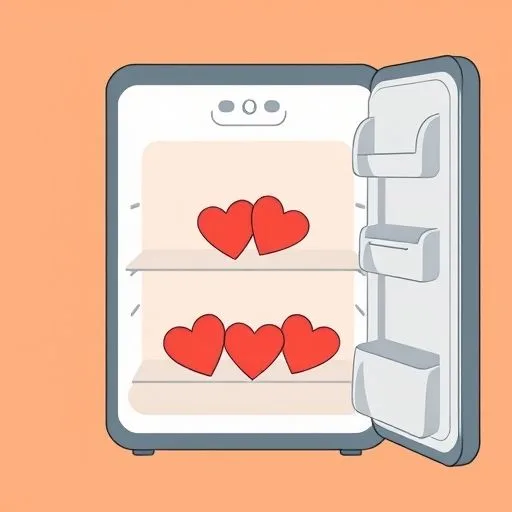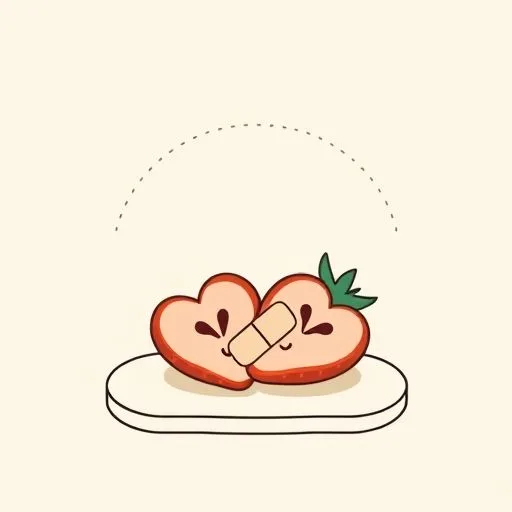
Open the fridge late at night and there they are: strawberries neatly quartered, arranged just so. One piece might be crooked, almost sleeping. And if you’re like me, you’ll pause, realizing this tiny ritual holds the weight of a world she carries alone. We dads see the peace on the surface—the calm breakfast, the smooth mornings—but not the quiet strength it took to make it happen. Because after the kids drift off, she’s already building tomorrow’s calm. Something any parent who loves a mom has felt, haven’t we?
The Checklist Running Before the Alarm Rings

Before sunrise, she’s already miles ahead. Lunches packed, snacks sorted, weather checked three times. When you find her calmly buckling kids into the car, that breath she takes isn’t exhaustion—it’s the quiet sigh of ‘all set.’
You might ask, ‘Did you bring the spare shirt?’ but she’s already tucked it into the diaper bag, folded just so. It’s sandcastle building at the water’s edge: every day you rebuild against the tide, but we might not always see the work until the castle stands.
Here’s what hits me hardest. She’s running three mental lists at once—doctor appointments, grocery needs, whether tiny hands are clean enough. And she does it without fanfare.
The emotional labor isn’t in the actions themselves. It’s in the mental rehearsal: ‘What if it rains?’ ‘Did I miss a toy under the bed?’ ‘Will today be the day the meltdown happens?’
What if, instead of asking ‘Did you…?’, we started with ‘I know you did’? What if we simply said, ‘I see how much you hold’?
The Practice Behind the “Perfect” Piece

Remember when kids suddenly demanded strawberries ‘just right’? ‘Quarters only!’ became sacred overnight. As dads, we only saw the result—a happy kid eating without fuss.
But we missed the late nights she spent practicing with a knife, the ruined berries, the tiny nicks on her fingers. How many times did she adjust her grip? How many times did she whisper, ‘This has to be perfect’?
And when the ‘perfect’ changed—maybe to eighths?—she adapted without a word. But the emotional toll of those shifts? That stays hidden.
It’s not the physical work of cutting fruit; it’s the mental load of anticipating every possible need so no meltdown happens. For her, there’s no ‘good enough’—only ‘how can I do better for them?’ When she finally nails it? No celebration. She just moves to next invisible task.
That’s the hidden work: the trial and error done when everyone else sleeps, so your child wakes to a world that feels effortless and full of love.
How We Handle the Hidden Work: Small Shifts That Matter

For me, the lightbulb moment came with those strawberries. Handling her hidden work isn’t grand gestures—it’s tiny shifts in awareness. Start by seeing what’s invisible: the mental lists, the practice behind ‘simple’ tasks.
Then step into support. Now I fill water bottles at dinner, not because she asked, but because I saw her doing it at 5 a.m. On Sundays, I lay out kids’ clothes so she doesn’t waste energy hunting for matching socks.
But the real change? It’s in the words. Instead of ‘What’s for dinner?’, I say ‘I know you’re thinking about dinner—let’s figure it out together.’ Instead of assuming she’s ‘done,’ I ask ‘How can I help right now?’
It’s not about taking over. It’s about sharing the weight. When I do this, her shoulders drop—just enough to let the air in. Because being seen is oxygen.
That’s how we handle it: not by fixing, but by joining. Hand in hand, step by step. Maybe that’s why those crooked strawberry quarters matter. They’re proof we’re finally seeing what’s always been there.
Source: AI Disruption and Rising Burnout Drive Conversation on Time Ownership, Examined in Bill Korman’s The 168 Game, Globe Newswire, 2025/09/12 22:44:00
